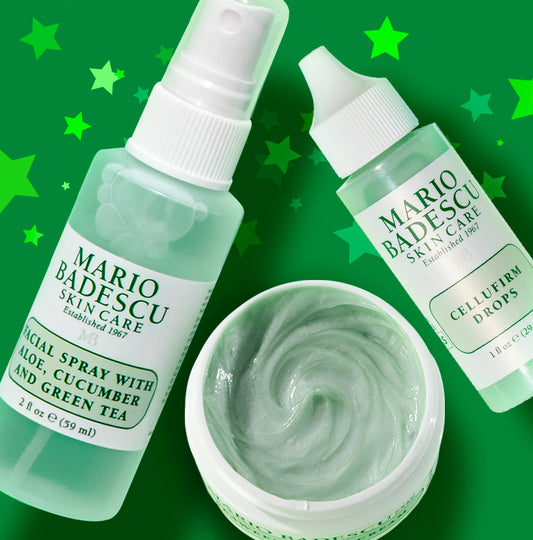Unsure what’s causing your red, irritated skin?
A lot of people think they have sensitive skin, but (in reality) far fewer people actually do. Why is this? It's possible to experience the symptoms of sensitive skin due to having a skin condition known as sensitized skin. While they may sound similar, sensitive skin and sensitized skin are very different things, yet knowing the difference can make all the difference in your skin care regimen - and how well it works for your skin.
Sensitive skin is a genetic trait; typically people with this predisposition are prone to asthma, allergies, and quick flushes of the skin (blushing). Those with sensitive skin typically have less pigment, a thinner epidermis, and blood vessels near the skin’s surface. This skin type is most common to those of Northern European ancestry. It is believed that sensitive skin is considered more delicate and may be the result of a less effective protective outer layer on the skin’s surface (epidermis). This can allow allergens, microbes, and irritants to reach deeper into the skin and cause flair ups. Those with lighter skin, hair, and eyes may be more prone to having sensitive skin. Darker complexions can also be sensitive, but this is less common.
Sensitized skin is caused by a number of factors including lifestyle, exposure to stress, chemicals, smoking, alcohol, medical procedures, over-exfoliation, and pollution. Moreover, this skin condition occurs due to the environment. To help avoid unnecessary redness and irritation:
- Avoid aggressive treatments
- Limit exfoliation
- Refrain from using products with alcohol and fragrance
- Protect yourself from the sun
- Use neither too hot nor too cold water on the skin
- Maintain a healthy diet, and avoid triggering foods
How to patch test the skin: Before using any cosmetic product, it’s important to test it out on a small area to determine how your skin will react. Apply a small amount of product to the inner arm and follow the directions on the label. Wait 24 hours and observe the area of application. If your skin appears red or irritated, use is not recommended. If your skin appears normal, the product should be safe to use. While sensitive skin and sensitized skin may be very similar in appearance, the best way to determine which type you have is to look at your skin’s history, genetic factors, and whether or not your lifestyle and environmental habits may have contributed to your skin’s current condition. Avoid irritation and inflammation by having a skincare expert analyze your skin and recommend the best products for your complexion’s needs.
Have you experienced sensitized skin? What caused it, and how did you get it under control?
…




